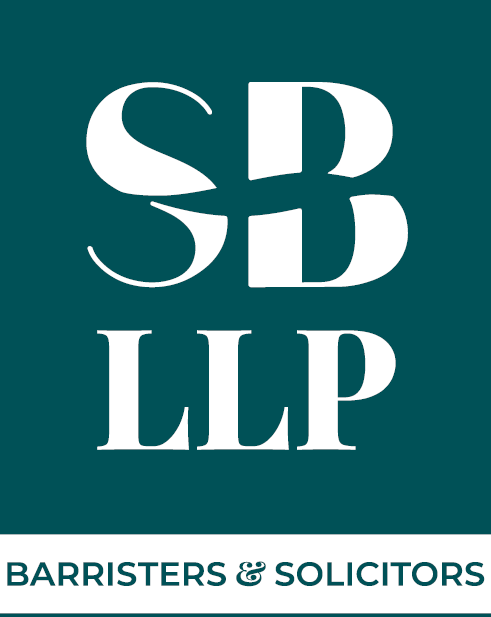The Oppression Remedy and Reasonable Expectations
Written by: Laura McKenzie, Student-at-Law
This article builds upon our previous article, Shareholder Rights Relating to Oppressive Treatment, with an update including additional guidance provided by the Court of King’s Bench earlier this year.
Refresher: What is the Oppression Remedy?
The oppression remedy under section 242 the Alberta Business Corporations Act (the “Act”) is available to: ¹
a registered holder or beneficial owner, or a former registered holder or beneficial owner, of a security of a corporation or any of its affiliates;
a director or an officer or a former director or officer of a corporation or of any of its affiliates;
a creditor, if the Court exercises its discretion; and/or
any other person who, in the discretion of the Court, is a proper person to make an application.
An equitable remedy, the oppression remedy does not enforce a specific legal right – like those found in contract or tort law – but instead focuses on achieving fairness in all the circumstances. ²
The legal test to access the oppression remedy establishes three distinct categories of wrongful conduct, each reflecting a different degree of harm to complainants: ³
Oppression is conduct that is burdensome, harsh and wrongful and represents an abuse of power;
Unfair prejudice is conduct that does not amount to a wrong of the most serious sort, but includes conduct such as preferring some interests over others; and
Unfair disregard extends the remedy to ignoring a shareholder’s interest as being of no importance, contrary to their reasonable expectations.
The foundation for a claim of oppression is that the complainant needs to establish the reasonable expectations they held and then prove those reasonable expectations were violated.
Update from the Court on the Oppression Remedy
In 2025, the Court of King’s Bench of Alberta released its decision in Just Biofiber Corp v Just Biofiber Structural Solutions Corp, which dealt with a claim under the oppression remedy of the Act.
Just Biofiber involved a dispute over oppression relief sought by three companies that claimed they were unfairly treated by Just Biofiber Structural Solutions Corp., alleging transactions involving share sales were conducted under value. ⁴ The Court’s decision primarily focused on if the companies had adequately shown the expectations they held regarding their treatment as shareholders were reasonable.
What is a Reasonable Expectation?
Not all unfair conduct rises to the level for which a court may grant a remedy ⁵, making the cornerstone of the oppression remedy identifying the reasonable expectations of shareholders. ⁶
In law, the term “reasonable” refers to an objective standard that compares conduct or decisions against what an average, prudent person would consider acceptable in similar circumstances.
Some reasonable expectations may simply be assumed, such as: ⁷
A shareholder may reasonably expect that a corporation will comply with the requirements of, among other things, all legislation, bylaws, and shareholder agreements; and
Shareholders will be regularly informed of important developments affecting the corporation.
When a reasonable expectation cannot be assumed, courts determine them from the evidence using the following factors: ⁸
General commercial practice;
The nature of the corporation;
The relationship between the parties;
Past practices;
Steps the claimant could have taken to protect itself;
Any representations and agreements; and/or
The fair resolution of conflicts between corporate shareholders.
A shareholder wishing to show the Court they were treated unfairly has the burden of establishing that: ⁹ ¹⁰
They held expectations;
Those expectations were reasonable; and
The corporation’s conduct violated their interests personally.
The Court in Just Bio clarifies that a complainant must show the Court evidence of the harm they individually suffered. ¹¹
The oppression remedy is strictly personal in nature. ¹² A shareholder cannot make generalized claims or a claim as part of a collective of shareholders but is required to lead evidence of the specific harm they suffered because of the corporation’s conduct. ¹³
In Just Bio, the absence of evidence from the complainants was fatal to their claim and their claim was dismissed. ¹⁴
SB LLP: Your Experienced Corporate Lawyers in Edmonton
If you believe your interests as a shareholder have been oppressed, unfairly prejudiced, or unfairly disregarded, but you are unsure if you have enough or the right kinds of evidence to prove your claim, reach out to the team at SB LLP. Our experts will guide you through the process of showing the Court your expectations as a shareholder were reasonable and they were not met.
*Disclaimer: This article is not intended to provide legal advice and is for information purposes only.
¹ Alberta Business Corporations Act, RSA 2000, c. b-9, s.242.
² BCE, supra, note 2 at para 62
³ BCE v 1976 Debentureholders, 2008 SCC 69 at para 67 [BCE].
⁴ Just Biofiber Corp v Just Biofiber Structural Solutions Corp, 2025 ABKB 102 [Just Bio].
⁵ Shefsky v California Gold Mining Inc, 2016 ABCA 103 at para 2 [Shefsky].
⁶ BCE, supra, note 2 at para 61.
⁷ Just Bio, supra note 4 at para 38.
⁸ BCE, supra, note 2 at para 72.
⁹ JBRO Holdings Inc v Dynasty Power Inc, 2021 ABQB 463 at para 90 [JBRO].
¹⁰ Just Bio, supra note 4 at para 101.
¹¹ Ibid.
¹² Shefsky, supra, note 5 at para 40.
¹³ Just Bio, supra note 4 at para 101.
¹⁴ Ibid at para 122.

